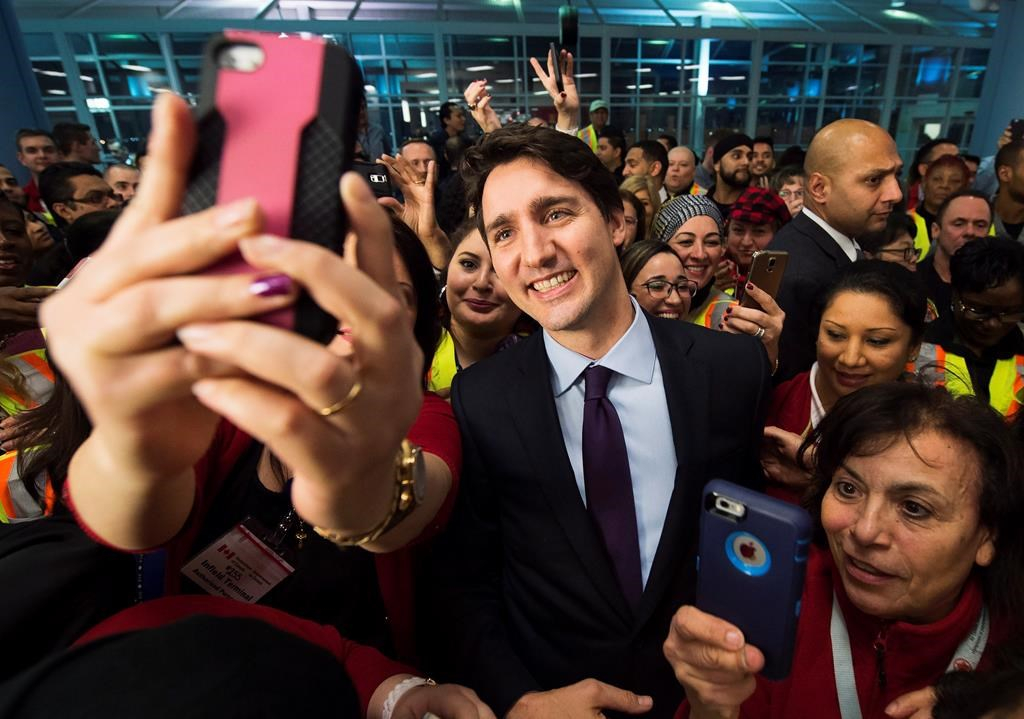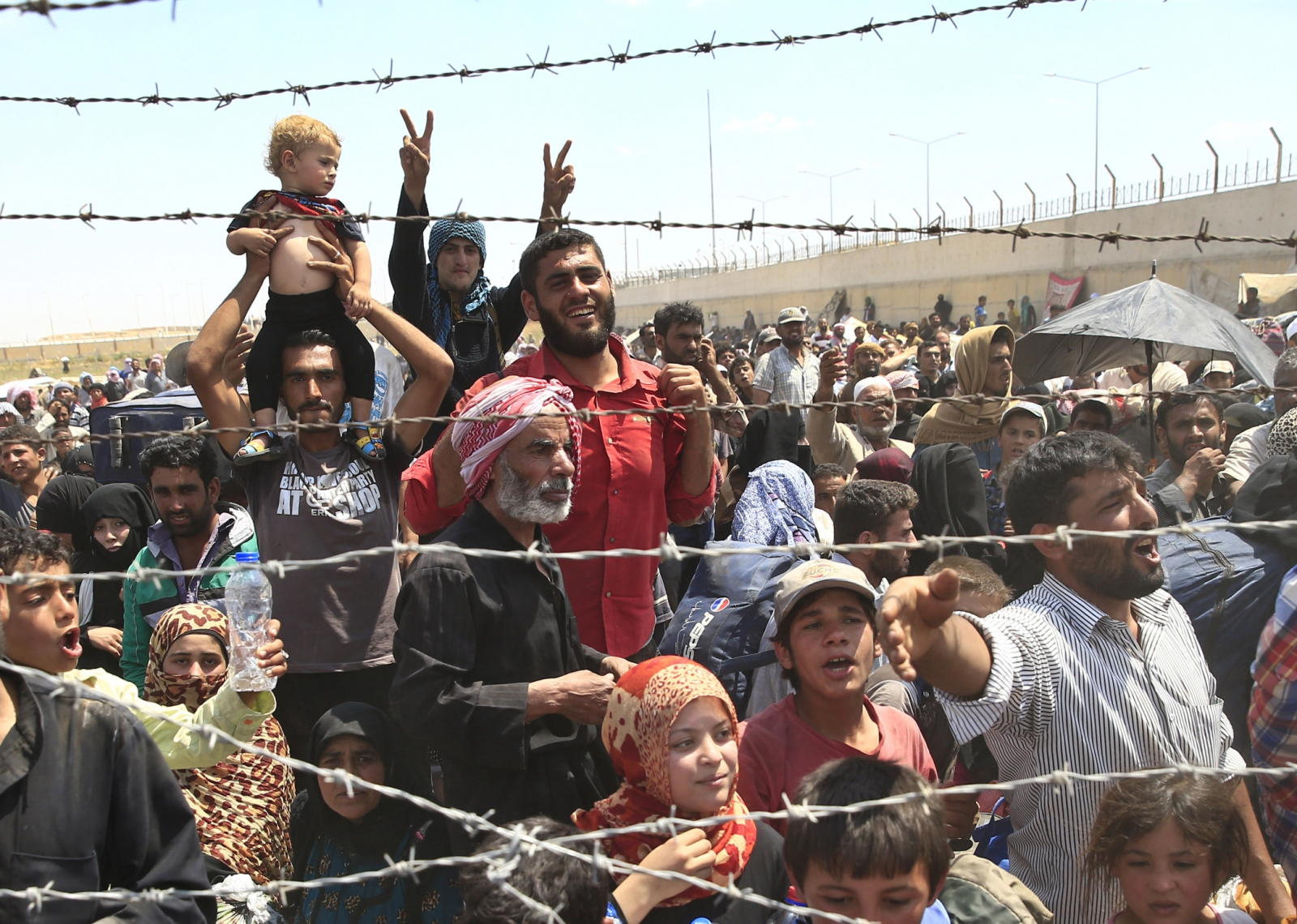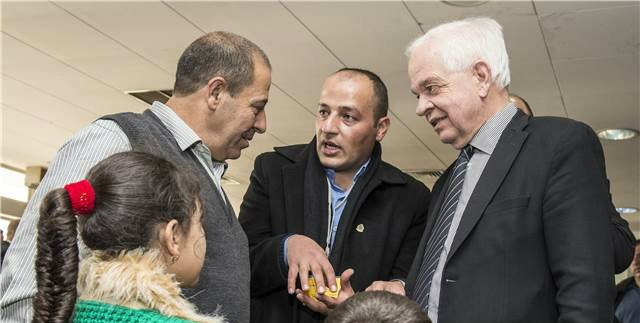Federal Minister of Immigration John McCallum promised to double the number of Syrian refugees in Canada from 25,000 to 50,000 by the end of next year, during a weekend visit to Lebanon and Jordan.
During his journey, McCallum saw off the first refugee flight out of Amman to Toronto on Dec. 20, after earlier meeting with refugee families in both Lebanon and Jordan, who are hoping for a new life in Canada. McCallum held talks with both the Lebanese and Jordanian governments in which he reaffirmed Ottawa's support for assisting and resettling refugees.
The minister also toured the Canadian Operations Centres in both countries, which handle refugee processing, including biometric collection, medical exams, and immigration interviews. He was also updated on progress by both the United Nations and International Organization for Migration. Both of these organizations carry out their own processing and screening of refugees.
“I am certain that through our #WelcomeRefugees national project we are doing the right thing. I am humbled by their plight and know Canada's hard work to resettle displaced Syrian refugees as quickly as possible is having a positive and significant impact,” said McCallum.
The federal government is currently airlifting a total of 25,000 private and government-sponsored Syrian war refugees from Lebanon and Jordan to Canada. Ottawa’s original plan was to bring all 25,000 refugees into Canada by year’s end, but security concerns after the Paris attacks prompted the government to slow down the pace of resettlement.
In addition, the Liberals have restricted single Syrian men to private sponsorship only, prompting criticism from both refugee advocates and the opposition New Democrats. Nevertheless, the Liberal government continues to prioritize whole families, members of Syria’s oft-persecuted LGBTQ community, and women deemed vulnerable to rape or sexual exploitation for government refugee sponsorship.
Under its present plan, Ottawa will airlift all 10,000 privately-sponsored refugees to Canada by Dec. 31, before airlifting the remaining 15,000 government-sponsored Syrians by the end of February 2016.
The first refugee flight, carrying 160 Syrians from Beirut, landed in Toronto on Dec. 10. Prime Minister Justin Trudeau and Ontario Premier Kathleen Wynne personally welcomed the first arrivals at Pearson Airport. A second flight that arrived in Montreal two days later was greeted by Governor General David Johnston.

Drop in the bucket
However, even if the Liberal government doubles Canada's Syrian refugee intake to 50,000, they will remain just a tiny fraction of nearly 4.4 million refugees who have fled their country’s civil war since it began in March 2011.
As of Dec. 17, the United Nations High Commission for Refugees (UNHCR) had registered 633,466 Syrians in Jordan, another 1,070,189 in Lebanon, and 2,291,900 in Turkey. A further 807,337 Syrians applied for asylum in Europe between April 2011 and November 2015.
“The crisis continues to have an enormous social and economic impact on the host countries, with many local, municipal and national services such as health, education and water under severe strain. Vulnerable host community populations have reported decreases in wages and deteriorating working conditions due to increased competition for low and unskilled jobs,” states the UNHCR’s Regional Refugee and Resilience Plan 2016 – 2017.

McCallum acknowledged the social and economic pressure that Syria’s neighbours have experienced since the civil war began. While in Jordan, the minister joined local officials for a tour of the Al-Akeidr landfill site, which is being constructed with Canadian support. The new landfill is one of several projects that Canada is funding in the region, to help shore up local resources that have been stretched thin by the refugee influx.
“The countries of Lebanon and Jordan have opened their doors to well over a million refugees even though it is clearly a strain on local resources. This reaffirms for me Canada must do its part to urgently resettle some of these Syrian refugees to Canada,” said McCallum.




Comments